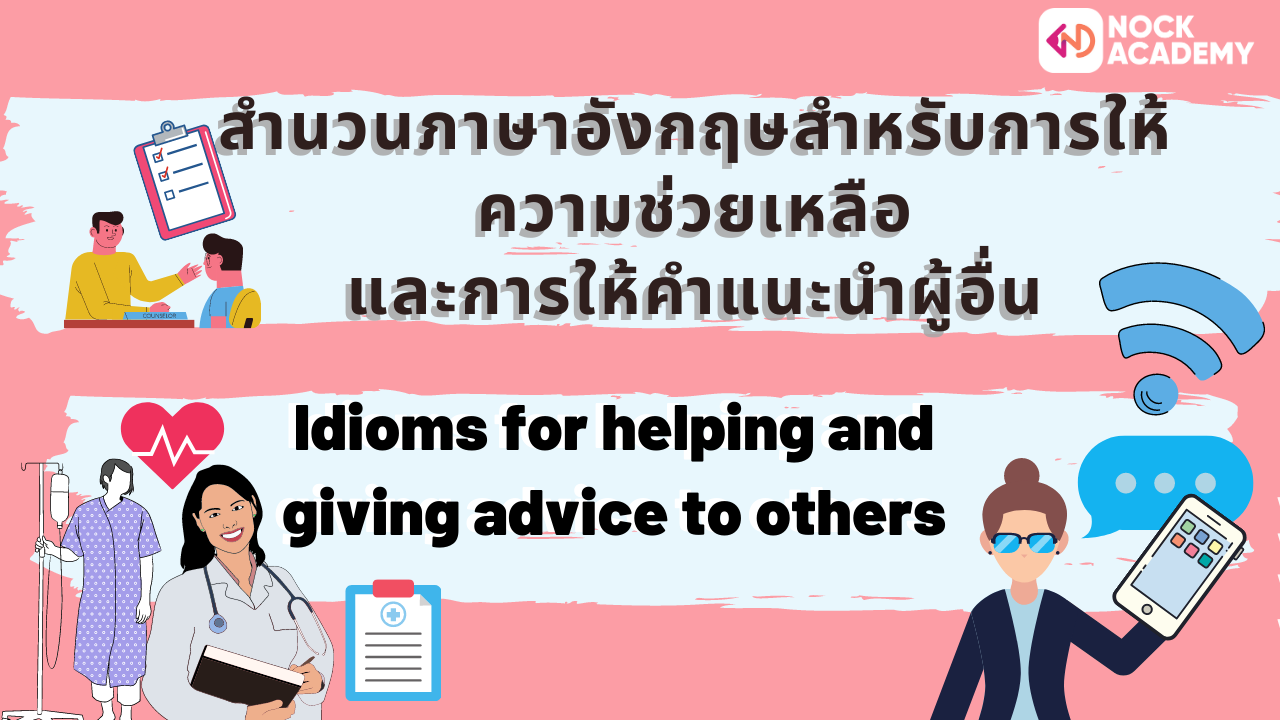เกรงว่า ภาษาอังกฤษ: วิธีง่าย ๆ ในการพัฒนาทักษะภาษาอังกฤษของคุณ
เกรงใจ ภาษาอังกฤษใช้คำไหนดีที่สุด?
Keywords searched by users: เกรงว่า ภาษาอังกฤษ เกรงว่าจะไม่สะดวก ภาษาอังกฤษ, เกรงว่าจะไม่ทันเวลา ภาษาอังกฤษ, เกรงว่าคือ, เกรงใจ ภาษาอังกฤษ, ฉันเกรงว่าจะรบกวนคุณ ภาษาอังกฤษ, รู้สึกกลัว ภาษาอังกฤษ, เกรงกลัว, ฉันกลัวเจ็บ ภาษาอังกฤษ
เกรงว่า ภาษาอังกฤษ: A Comprehensive Guide to Overcoming English Language Anxiety
Learning a new language can be a rewarding but challenging endeavor. For many Thai speakers, mastering English, also known as เกรงว่า ภาษาอังกฤษ, comes with its own set of fears and apprehensions. In this comprehensive guide, we will explore various aspects of overcoming language anxiety and provide practical tips to enhance your English language skills.
การค้นพบคำศัพท์เพิ่มเติมเกี่ยวกับ เกรงว่า ภาษาอังกฤษ
เกรงว่า ภาษาอังกฤษ, or English Language Anxiety, refers to the uneasiness and fear individuals may experience when learning or using the English language. This anxiety can manifest in different forms, such as fear of making mistakes, feeling inadequate, or worrying about not being able to express oneself effectively.
การใช้ Longdo Dictionary เพื่อค้นหาคำศัพท์
One effective way to alleviate language anxiety is by building a strong vocabulary. Longdo Dictionary is a valuable tool that can assist you in discovering new words and their meanings. Here’s how you can use it:
-
Access Longdo Dictionary: Visit Longdo Dictionary on your web browser.
-
Enter the Word: Type the English word or phrase you want to learn more about in the search bar.
-
Explore Definitions: Longdo Dictionary provides detailed definitions, examples, and even pronunciation guides. Take the time to understand the usage of the word in different contexts.
-
Bookmark Important Words: Create a personalized list of words you find challenging or important. Review and revise these regularly to reinforce your memory.
วิธีการอ่านและทำความเข้าใจคำศัพท์ในประโยค
Reading English texts can be intimidating, but breaking down sentences and understanding vocabulary in context can significantly enhance your comprehension skills. Follow these steps:
-
Start with Simple Texts: Begin with easy-to-read materials, such as children’s books, short articles, or online blogs.
-
Identify Key Words: Highlight or underline unfamiliar words. Use online tools like Longdo Dictionary to look up their meanings.
-
Analyze Sentence Structure: Pay attention to how sentences are constructed. Identify subject-verb relationships and practice forming similar sentences.
-
Practice Reading Aloud: Pronunciation is crucial. Reading aloud helps improve your spoken English and boosts confidence.
การเข้าใจความหมายผ่านตัวอย่างประโยคจริง
Learning from real-life examples is a practical approach to understanding the nuances of the English language. Follow these steps:
-
Engage with Authentic Materials: Watch English movies, listen to podcasts, or read articles written by native speakers.
-
Take Note of Idioms and Phrases: English is rich in idiomatic expressions. Make a list of commonly used phrases and learn their meanings.
-
Join English Language Communities: Online forums and social media groups provide a platform to interact with English speakers. Participate in discussions and seek feedback on your language usage.
-
Immerse Yourself in English Content: Surround yourself with English media to create an immersive learning experience. Change your device settings to English, and set aside time for daily exposure.
วิธีการเรียนรู้คำศัพท์ใหม่ผ่านทางสื่อออนไลน์
In the digital age, online resources play a crucial role in language learning. Here’s how you can leverage them effectively:
-
Use Language Learning Apps: Platforms like Duolingo, Memrise, and Babbel offer interactive lessons and vocabulary-building exercises.
-
Watch Educational Videos: YouTube is a treasure trove of English learning content. Subscribe to channels that focus on language tutorials, grammar lessons, and vocabulary building.
-
Follow English Blogs and Websites: Stay updated with the latest trends in English language usage by regularly reading blogs and websites. Some reliable sources include Babla and True Plookpanya.
-
Participate in Online Courses: Enroll in structured online courses offered by reputable language learning platforms. These courses often cover various proficiency levels, from beginner to advanced.
การนำความรู้ไปใช้ในชีวิตประจำวัน
The ultimate goal of learning a language is to apply it in real-life situations. Here are practical tips for integrating English into your daily routine:
-
Label Your Surroundings in English: Stick labels on objects around your home with their English names. This helps reinforce vocabulary effortlessly.
-
Keep a Journal in English: Maintain a daily journal where you write about your experiences, thoughts, and observations in English. This habit enhances writing skills and allows for self-reflection.
-
Practice Small Talk: Engage in casual conversations with friends or language exchange partners in English. Practice small talk to build confidence in social settings.
-
Set Language Learning Goals: Establish realistic language learning goals and track your progress. Celebrate small achievements, and don’t be too hard on yourself when faced with challenges.
การเสริมทักษะการพูดและเขียนภาษาอังกฤษ
Effective communication involves both speaking and writing skills. Here’s how you can enhance these aspects of your English proficiency:
-
Join Speaking Clubs or Language Exchange Programs: Participate in English-speaking clubs or find language exchange partners to practice conversational English regularly.
-
Record Yourself Speaking: Use voice recording apps to record yourself speaking in English. Listen to the recordings to identify areas for improvement in pronunciation and fluency.
-
Write Regularly: Start a blog, write essays, or contribute to online forums in English. Regular writing practice helps refine your grammar, vocabulary, and overall language structure.
-
Seek Feedback: Don’t hesitate to ask for feedback from teachers, language exchange partners, or online communities. Constructive criticism is a valuable tool for improvement.
เกรงว่าจะไม่สะดวก ภาษาอังกฤษ: Overcoming Common Language Anxiety Scenarios
เกรงว่าจะไม่ทันเวลา ภาษาอังกฤษ
Time constraints are a common concern for language learners. To overcome this, prioritize consistent, focused practice. Break down your learning sessions into manageable time slots throughout the day.
เกรงว่าคือ, เกรงใจ ภาษาอังกฤษ
Fear of misunderstanding or misinterpreting information is natural. To address this, practice active listening and seek clarification when needed. Use resources like online forums or language exchange partners to discuss and understand different perspectives.
ฉันเกรงว่าจะรบกวนคุณ ภาษาอังกฤษ
The fear of inconveniencing others with language mistakes is common. Remember that making mistakes is part of the learning process. Most people appreciate the effort to communicate in their language and are willing to help.
รู้สึกกลัว ภาษาอังกฤษ, เกรงกลัว, ฉันกลัวเจ็บ ภาษาอังกฤษ
Fear and anxiety can hinder language progress. Practice mindfulness and relaxation techniques to manage anxiety. Remind yourself that language learning is a gradual process, and setbacks are opportunities for growth.
FAQs (คำถามที่พบบ่อย)
1. เกรงว่า ภาษาอังกฤษ คืออะไร?
เกรงว่า ภาษาอังกฤษ หมายถึง ความกังวลและความกลัวที่ผู้เรียนอาจเจอขณะเรียนหรือใช้ ภาษาอังกฤษ ซึ่งอาจเกิดขึ้นในรูปแบบต่างๆ เช่น ความกังวลที่จะทำผิด, ความรู้สึกไม่มั่นคง, หรือกังวลเกี่ยวกับการไม่สามารถแสดงออกตนเองได้อย่างมีประสิทธิภาพ.
2. วิธีที่ Longdo Dictionary ช่วยในการค้นหาคำศัพท์?
Longdo Dictionary เป็นเครื่องมือที่มีประโยชน์ในการค้นพบคำศัพท์ใหม่และความหมายของพวกเขา. ให้ปฏิบัติตามขั้นตอนนี้:
-
เข้าถึง Longdo Dictionary: เข้าชม Longdo Dictionary บนเบราว์เซอร์ของคุณ.
-
พิมพ์คำ: พิมพ์คำศัพท์หรือวลีที่คุณต้องการเรียนรู้เพิ่มเติมในแถบค้นหา.
-
สำรวจคำศัพท์: Longdo Dictionary ให้คำอธิบายอย่างละเอียด, ตัวอย่าง, และแนะนำการออกเสียง. ให้ใช้เวลาเพื่อเข้าใจการใช้งานของคำในบริบทต่างๆ.
-
บุ๊กมาร์กคำสำคัญ: สร้างรายการของคำที่คุณพบท้ายหน้าหรือมีความสำคัญ. ทบทวนและปรับปรุงเหล่านี้เป็นประจำเพื่อเสริมความจำของคุณ.
3. วิธีที่จะเตรียมตัวเพื่อการอ่านและทำความเข้าใจประโยคภาษาอังกฤษ?
การอ่านข้อความภาษาอังกฤษอาจทำให้รู้สึกกลัว, แต่การแยกประโยคและเข้าใจคำศัพท์ในบริบทสามารถเสริมสร้างทักษะของคุณได้อย่างมีประสิทธิภาพ. ปฏิบัติตามขั้นตอนเหล่านี้:
-
เริ่มด้วยข้อความที่เข้าใจ: เริ่มด้วยวัสดุที่ง่ายต่อการอ่าน, เช่น หนังสือเด็ก, บทความสั้น, หรือบล็อกออนไลน์.
-
ระบุคำศัพท์หลัก: เน้นหรือขีดเส้นใต้คำศัพท์ที่ไม่คุ้นเคย. ใช้เครื่องมือออนไลน์เช่น Longdo Dictionary เพื่อหาความหมายของพวกเขา.
-
วิเคราะห์โครงสร้างประโยค: ให้ความสนใจถึงวิธีที่ประโยคถูกสร้าง. ระบุความสัมพันธ์ระหว่างเซนต์และฝึกการสร้างประโยคที่คล้ายกัน.
-
ซ้อมอ่านโดยเสียง: การอ่านโดยเสียงช่วยเพิ่มทักษะการพูดภาษาอังกฤษและเสริมความมั่นคงในตัวเอง.
4. วิธีที่จะนำความรู้ไปใช้ในชีวิตประจำวัน?
การนำภาษาไปใช้ในทางปฏิบัติเป็นเป้าหมายสุดท้ายของการเรียนภาษา. นี่คือเคล็ดลับที่น่าจะมีประโยชน์:
-
ติดป้ายรอบตัวเป็นภาษาอังกฤษ: แปะป้ายบนวัตถุรอบตัวที่มีชื่อภาษาอังกฤษ. สิ่งนี้ช่วยเสริมคำศัพท์ได้อย่างไม่ตรงตา.
-
จัดทำบันทึกการศึกษาทางภาษา: บันทึกรายละเอียดทางภาษาทุกวันเกี่ยวกับประสบการณ์, ความคิด, และสังเกตการณ์ในภาษาอังกฤษ. นี้ช่วยในการปรับปรุงทักษะเขียนของคุณ.
-
ซ้อมสนทนาเล็กน้อย: มีการสนทนาที่ไม่เป็นทางการกับเพื่อนหรือคู่ควรในภาษาอังกฤษ. ซ้อมการสนทนาเล็กน้อยช่วยเสริมความมั่นคงของคุณในสถานการณ์สังคม.
-
ตั้งเป้าหมายการเรียนภาษา: กำหนดเป้าหมายการเรียนภาษาที่สมเหตุสมผลและติดตามความคืบหน้าของคุณ. แสดงความยินดีในความสำเร็จของคุณและอย่าดันตัวเองเมื่อเผชิญกับปัญหา.
5. วิธีที่จะเพิ่มทักษะการพูดแล
Categories: นับ 48 เกรงว่า ภาษาอังกฤษ

afraid. (adj) เกรงว่า(ไรดฺ) { rode, ridden, riding, rides } vi., vt. ขี่ม้า, ควบม้า, ขี่รถ, เดินเรือ, ลอยลำ, จอดเรือ, โต้คลื่น, อยู่บน, ดำเนินการต่อไป, วางเดิมพัน, อาศัย, ควบคุม, ครอบงำ, ทำให้ขี่ n. การเดินทางด้วยม้า, การเดินทางด้วยพาหนะ, ทางสำหรับขี่หรือขับรถ -Phr. (ride down ใช้อย่างปรานีลงแส้)(ไคทฺ) n. ว่าว
Ride ออกเสียงว่าอย่างไร
The word “Ride” can be pronounced as “ไรดฺ” in Thai, and it encompasses various meanings and uses, both as a verb and a noun. As a verb (vi., vt.), it can refer to activities such as riding a horse (“ขี่ม้า”), controlling or guiding a vehicle (“ควบม้า,” “ขี่รถ”), navigating a boat (“เดินเรือ,” “ลอยลำ”), anchoring a boat (“จอดเรือ”), surfing or riding waves (“โต้คลื่น”), being on or conducting oneself on a certain surface (“อยู่บน”), proceeding with an action (“ดำเนินการต่อไป”), placing a bet (“วางเดิมพัน”), dwelling or residing (“อาศัย”), exercising control or dominance (“ควบคุม,” “ครอบงำ”), and causing someone or something to ride (“ทำให้ขี่”). As a noun (n.), “Ride” can signify the act of traveling on a horse (“การเดินทางด้วยม้า”), the act of traveling in a vehicle (“การเดินทางด้วยพาหนะ”), or a path designed for riding or driving (“ทางสำหรับขี่หรือขับรถ”). Additionally, the phrase “ride down” is used with the meaning of descending gracefully or skillfully like a lance.
Kite อ่าน ว่าอะไร
The phrase “Kite อ่าน ว่าอะไร” is written in Thai, and it translates to “What does Kite mean?” in English. This inquiry pertains to the meaning of the term “Kite” in the context of the Thai language. By providing the translation and specifying the language as Thai, readers can now better comprehend the question and understand that it seeks an explanation of the term “Kite” in the Thai linguistic context.
Afraid อ่านยังไง
[(อะเฟรด’) adj. กลัว, เกรง, Syn. scared, fearful, Ant. confident, fearless.] In Thai, the term “อะเฟรด” is an adjective that describes a state of fear or apprehension. It is synonymous with words like scared and fearful, conveying a sense of being afraid or anxious. On the contrary, antonyms such as confident and fearless highlight the opposite emotions, suggesting a lack of fear or hesitation. This term is commonly used in discussions about emotions and attitudes, providing a nuanced understanding of the range of feelings individuals may experience.
สำรวจ 24 เกรงว่า ภาษาอังกฤษ








See more here: lasbeautyvn.com
Learn more about the topic เกรงว่า ภาษาอังกฤษ.
- เกรง แปลว่าอะไร ดูความหมาย ตัวอย่างประโยค หมายความว่า …
- English AfterNoonz – ฉันกลัว… I’m scared (of…) I’m afraid (of. …
- *เกรง* แปลว่าอะไร ดูความหมาย ตัวอย่างประโยค หมายความว่า …
- ด้วยเกรงว่า – คำแปลของภาษาอังกฤษ – พจนานุกรม bab.la
- Grammar: วิธีการใช้ Afraid แบบต่าง ๆ
- ride แปลว่าอะไร ดูความหมาย ตัวอย่างประโยค หมายความว่า พจนานุกรม …